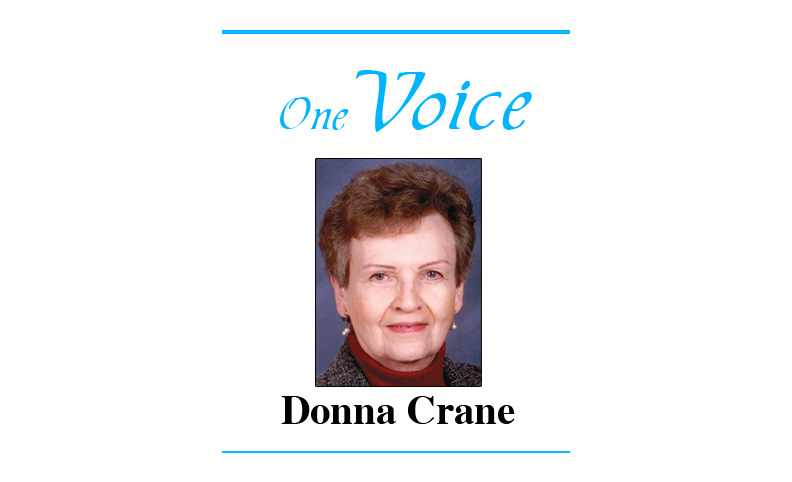
Last of two parts
Lornet Turnbull’s following article in YES Magazine, “Building Community by Buying Nothing,” is on hyperlocal gift economies: It’s similar to a radical new economic, except of course it’s an old economy that has been around forever.
“Following knee surgery five years ago, Myra Anderson was having difficulty getting around. Living alone in Charlottesville, Va., she began asking on Facebook if anyone could assist her in getting a few supplies.
“Since membership is determined by home address, there were concerns about people, like the unhoused, being denied membership. Some people in communities of color said they felt that group administrators were unresponsive to their concerns and complaints; they felt shut out or shut down. Some clusters parted ways with Buy Nothing to form their own giving communities.
“(Founders Liesl Clark and Rebecca Rockefeller have worked to address these problems, loosening some of the rules, adding foundational documents to the group’s website as well as guidelines on how to create a gift economy. Buy Nothing created an equity team in 2019 to develop strategies for addressing the issues the group was grappling with.
“Katherine Valenzuela Parsons, a member of the equity team and a volunteer administrator for a Buy Nothing group that she started in Moseley, Va., said the team has spent the past two years ‘trying to put ownership into the hands of the local community and letting them know that they make the decisions at the end of the day. … We’re trying to put as many resources out there as possible.’
“Additionally, Buy Nothing, which exists mostly on Facebook, is creating a new app that will allow anyone to connect and share with people near where they are, without needing to request access to a group or fit within specific geographic boundaries. They expect to launch the app by September 2021.
“Connecting People
“Meanwhile, people around the globe continue to find community in its many forms through their Buy Nothing connections.
“After hurricanes Harvey, Irma, and Maria, devastated parts of the U.S. and the Caribbean, for example, communities near and far gathered goods and supplies to help those in need.
“Buy Nothing communities delivered tents, tarps, sleeping bags, and solar panels to forgotten communities in Nepal following the magnitude 7.8 earthquake that devastated the country in 2015. ‘That kind of giving builds community among the people who are assembling all of the items,” Rockefeller said, ‘and it builds connections between the two communities that are giving and receiving from each other.’
“Buy Nothing has proven to be a powerful way to connect neighbors who might never have crossed paths otherwise. When Kate Watkins in Brisbane, Australia, asked her group if someone could feed her cat while she was away, the person who stepped up lived just around the corner from her home. ‘From those small seeds blossomed a fully grown friendship where she now comes along to my birthday parties, and my puppy (a new addition to the family) is more excited to see her than me!’ she wrote in an E-mail.
“In Chapel Hill, N. C., Amy Trojanowski has exchanged plenty of goods with a next-door neighbor she met on Buy Nothing, by taking the proverbial cup of sugar to a whole new level. She and another neighbor down the street regularly sit outside Trojanowski’s house, socially distanced, and ‘talk forever,’ she said, and added, ‘It was amazing to be able to make a new friend during COVID.’
“In LaTonya Baldwin’s case, the Buy Nothing Project created a cohort of friends in the Detroit area that she’s come to lean on over the past five years. They supported her decision to leave her corporate job to become a doula and stood beside her following her father’s sudden death. In 2019, when she moved from Farmington Hills, Mich., where she had established that area’s first Buy Nothing community, to Detroit, where she has created another, the people she met along the way eagerly stepped up to help. One member went house-hunting with her, based on the flurry of recommendations others were sending. They showed up to help with the packing and on moving day, too.
“In the end, she said, the exchange of resources is just an opportunity to connect. ‘What drew me to the Project was its mission,’ Baldwin said. ‘What I didn’t know was how deep and lasting those relationships could be,’ Turnbull wrote.
“An Invitation to Food Abundance
“Jammella Anderson, launched Free Food Fridge Albany last Summer at the height of the pandemic and resurgence of the Black Lives Matter movement. As a black woman, she wanted to push herself, and white allies, to be less performative and more action-oriented when it came to addressing systemic inequities, starting with food access. Through her social media organizing, a network of six fridges is now set up across Albany, N. Y., stocked and supported by a local grocery store, nearby farms and restaurants, and individual volunteers, as well as more than 500 persons who donate funds monthly through Patreon. Fridge beneficiaries can retrieve anything from milk to veggies and prepared meals. Albany’s freedges are part of a global network of free community fridges that expanded during the pandemic.”
Read the full story by Mike De Socio at yesmagazine.org/freedges
Lornet Turnbull is the former civil liberties editor for YES!, a Seattle-based freelance writer, and a regional freelance writer for The Washington Post. An award-winning enterprise reporter who’s worked in media for more than 20 years, Lornet has covered everything from the auto industry and labor unions in Michigan, to real estate and statehouse politics in Ohio, to homelessness in Seattle, to refugee children in the West Bank, and sex workers in Mexico City.

